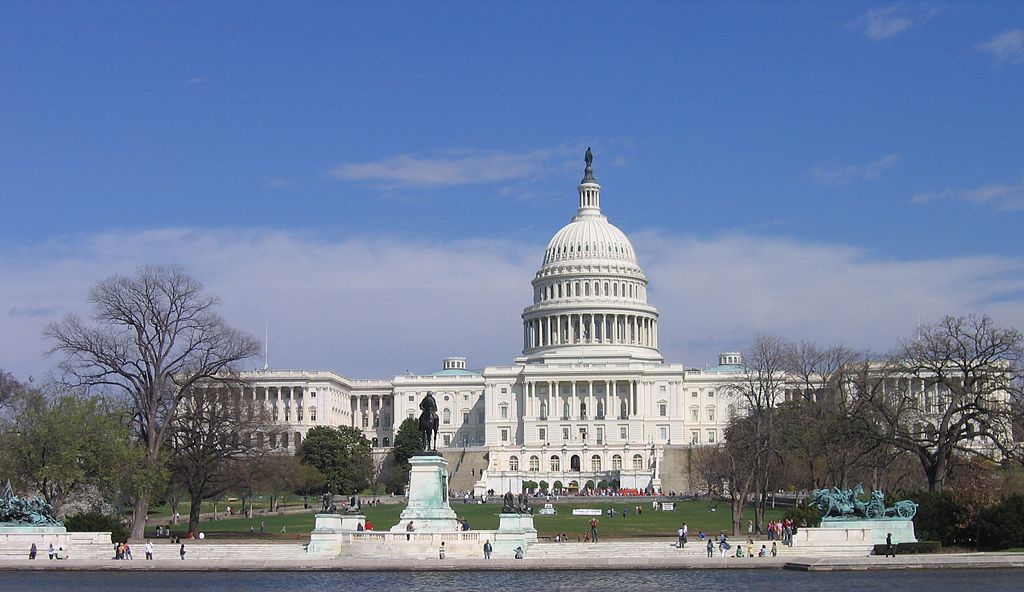Reporters Committee and 57 news organizations urge Senate to reconsider impeachment trial press restrictions

In a letter sent Thursday night, the Reporters Committee for Freedom of the Press, joined by 57 news organizations, asked the Senate to reconsider press restrictions during the impeachment trial that have been the subject of growing criticism over the past week.
“Absent an articulable security rationale,” the letter reads, Senate leaders and security officials “have an obligation to preserve and promote the public’s right to know.”
The Senate Standing Committee of Correspondents, the group of Senate reporters who issue credentials and uphold the rules of the Senate press gallery, urged Senate leadership on Jan. 14 to relax the restrictions, which include enhanced screening of reporters entering the press gallery and confining reporters to a press “pen” on the second floor of the Senate to prevent them from “walking and talking” with senators.
The standing committee had advocated for a temporary loosening of the existing restriction on the use of electronic devices in the Senate chamber (such devices are normally prohibited in the Senate’s upper gallery, and reporters will enter and exit to use their laptops and phones). But Senate leadership and security officials declined and added additional screening devices at the entrance to the gallery. The restrictions will prevent reporters from moving back and forth from the gallery to report on breaking developments.
“These potential restrictions fail to acknowledge what currently works on Capitol Hill,” the standing committee wrote in its letter, “or the way the American public expects to be able to follow a vital news event about their government in the digital age.”
Ultimately, the restrictions will impair as-it-happens reporting of the impeachment trial, which, the Reporters Committee’s letter noted, is of “abiding interest to Americans from across the political spectrum.”
The restrictions raise the additional concern — as expressed by the standing committee — that the lockdown “gives the impression that it is being done mostly to protect Senators from the bright light of the public knowing what they are doing in one of the country’s most important moments.”
Additionally, recent reporting suggests the restrictions are being enforced in an ad hoc and inconsistent manner, and that reporters are learning about the rules in “real time.” Individual reporters have described multiple incidents of Capitol police officers interfering in conversations with willing senators.
Emma Dumain with McLatchy tweeted that she was speaking to Sen. Mike Braun (R-Ind.) when an officer asked them to step into the press area to finish the conversation. “[T]hank you to @SenatorBraun who was happy to accompany me to my cage so he could finish his thought,” wrote Dumain. Reportedly, a Capitol police officer also interrupted a conversation between Sen. Pat Roberts (R-Kan.) and a reporter.
The restrictions appear to be more severe than those in place during the 1998 impeachment trial of President Bill Clinton, or the recent nomination of U.S. Supreme Court Justice Brett Kavanaugh.
Legally, lawmakers and Capitol security officials have some discretion to restrict press access to the Capitol building itself, but it is not limitless. Courts have found that the Capitol is not a “public forum” under the First Amendment (meaning an area that has traditionally been open to protest or public discussion like a sidewalk or park). But restrictions must not be based on favor or disfavor of the speech at question, and they must be “reasonable.”
Additionally, once a government body permits press access, it cannot then deny access based on vague or arbitrary standards. Inconsistent enforcement of the regulations could raise this constitutional concern, which was also at play in the two recent cases where the Trump White House sought to revoke or suspend press passes.
The Reporters Committee recently filed a friend-of-the-court brief in one of those cases — Karem v. Trump — highlighting the importance of constitutional protections against arbitrary enforcement in preserving official transparency and accountability.
The impeachment trial is a historic news story and a matter of intense public interest for Americans of all political stripes, and senators from both parties have criticized the restrictions.
Before the trial begins in earnest next week, Senate leadership should return to the negotiating table to hammer out rules that promote identifiable security interests while preserving press access.
The Reporters Committee regularly files friend-of-the-court briefs and its attorneys represent journalists and news organizations pro bono in court cases that involve First Amendment freedoms, the newsgathering rights of journalists and access to public information. Stay up-to-date on our work by signing up for our monthly newsletter and following us on Twitter or Instagram.
Photo by Andrew Bossi